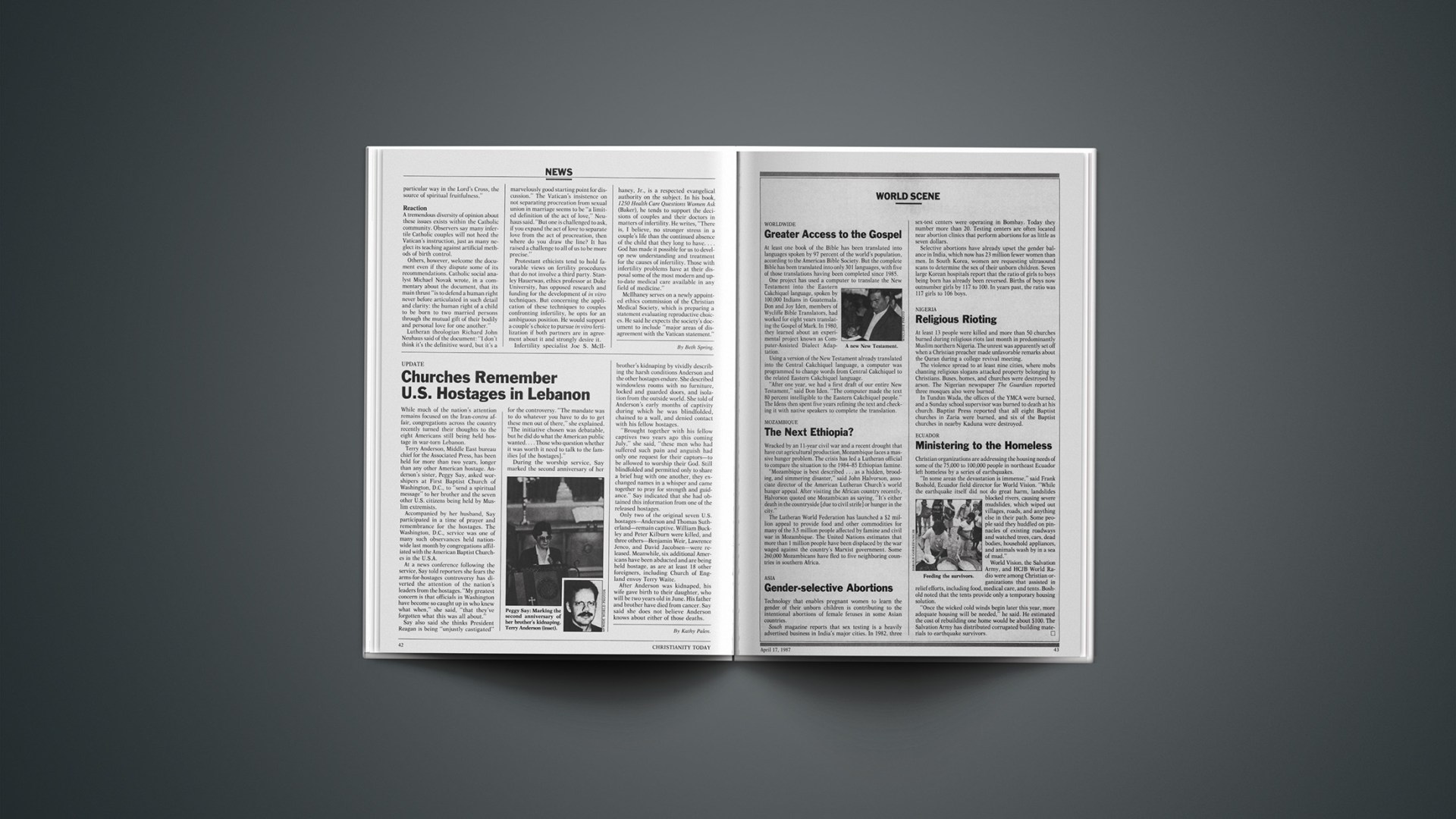While much of the nation’s attention remains focused on the Iran-contra affair, congregations across the country recently turned their thoughts to the eight Americans still being held hostage in war-torn Lebanon.
Terry Anderson, Middle East bureau chief for the Associated Press, has been held for more than two years, longer than any other American hostage. Anderson’s sister, Peggy Say, asked worshipers at First Baptist Church of Washington, D.C., to “send a spiritual message” to her brother and the seven other U.S. citizens being held by Muslim extremists.
Accompanied by her husband, Say participated in a time of prayer and remembrance for the hostages. The Washington, D.C., service was one of many such observances held nationwide last month by congregations affiliated with the American Baptist Churches in the U.S.A.
At a news conference following the service, Say told reporters she fears the arms-for-hostages controversy has diverted the attention of the nation’s leaders from the hostages. “My greatest concern is that officials in Washington have become so caught up in who knew what when,” she said, “that they’ve forgotten what this was all about.”
Say also said she thinks President Reagan is being “unjustly castigated” for the controversy. “The mandate was to do whatever you have to do to get these men out of there,” she explained. “The initiative chosen was debatable, but he did do what the American public wanted.… Those who question whether it was worth it need to talk to the families [of the hostages].”
During the worship service, Say marked the second anniversary of her brother’s kidnaping by vividly describing the harsh conditions Anderson and the other hostages endure. She described windowless rooms with no furniture, locked and guarded doors, and isolation from the outside world. She told of Anderson’s early months of captivity during which he was blindfolded, chained to a wall, and denied contact with his fellow hostages.
“Brought together with his fellow captives two years ago this coming July,” she said, “these men who had suffered such pain and anguish had only one request for their captors—to be allowed to worship their God. Still blindfolded and permitted only to share a brief hug with one another, they exchanged names in a whisper and came together to pray for strength and guidance.” Say indicated that she had obtained this information from one of the released hostages.
Only two of the original seven U.S. hostages—Anderson and Thomas Sutherland—remain captive. William Buckley and Peter Kilburn were killed, and three others—Benjamin Weir, Lawrence Jenco, and David Jacobsen—were released. Meanwhile, six additional Americans have been abducted and are being held hostage, as are at least 18 other foreigners, including Church of England envoy Terry Waite.
After Anderson was kidnaped, his wife gave birth to their daughter, who will be two years old in June. His father and brother have died from cancer. Say said she does not believe Anderson knows about either of those deaths.
By Kathy Paten.










